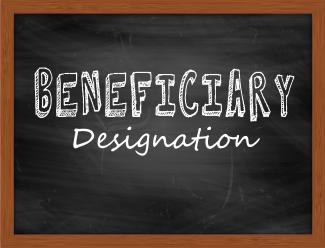
Beneficiary Designation: Why It’s Important in Estate Plans
Part of a proper estate plan involves giving considerable thought to who will inherit your wealth once you pass away. Whether it is a person(s), charity, trust, or estate, there are various options to choose depending on your legacy intentions. Beneficiary designations in retirement accounts, brokerage account, life insurance policies, etc. have an important, but separate role from legacy intentions that may be arranged in your Will or Trust. Here we will go over benefits of beneficiary designations as well as the different types.
Why Setup Beneficiary Designations
Setting up a beneficiary(s) is a straightforward process that can normally be done online for an account or policy (though sometimes a form may be involved). The benefit of doing so is that each account or policy will clearly outline who will inherit this asset, regardless of your Will’s intentions. Not doing so can result in a costly mistake.
When a beneficiary designation is not setup, your estate automatically becomes the beneficiary. As a result, the asset(s) will be subject to the Will’s intentions which may be separate from who you intended to inherit the asset(s). Additionally, it must go through the probate court system. Depending on the size and complexity of the Will, it may be a long and costly process before the asset is ultimately inherited.
Types of Beneficiary Designations
While the main types of beneficiaries are primary and contingent/secondary, IRAs and retirement accounts were impacted by the SECURE Act of 2019 through the elimination of the Stretch IRA (more info can be found in our blog) which makes beneficiaries of these kinds of accounts fall into three categories: Eligible Designated Beneficiary, Designated Beneficiary, Non-Designated Beneficiary:
- Eligible Designated Beneficiary (EDB): Individuals with accounts who pass away after 12/31/2019 are considered EDBs if they fall into 1 of 5 of the following sub-categories:
- A surviving spouse
- A disabled individual
- A chronically ill individual
- A minor child (under 18)
- An individual who is not more than 10 years than the account owner
- Designated Beneficiary (DB): A DB is any living person who does not fall into the 5 aforementioned sub-categories.
- Non-Designated Beneficiary (NDB): NDBs are any non-living beneficiaries such as a charity, estate or trust.
What makes EDBs different is they are still able to continue taking distributions over their life expectancy whereas all others will have to fully distribute the inherited account by the end of the 10th year after the owner’s death.
Beneficiary Designations in Brokerage Accounts
Standalone brokerage accounts (or Individual accounts) do allow for beneficiary designations though they are commonly known as Transfer on Death (TOD) or Payable on Death (POD) designations. This accomplishes the same goal as naming a beneficiary(s) on a retirement account or life insurance policy while also overriding the Will’s intentions. One disadvantage of a TOD designation is that the asset is still considered part of the decedent’s estate. In rare cases, creditors could seek to have debts repaid from this asset before the beneficiary has full access to the account.
Conclusion
While naming beneficiaries is a simple process, it is highly recommended you give thought to whom you will name, and make sure you review designations at least on an annual basis. Consulting with a fee-only financial advisor or estate attorney can help you setup a proper estate plan that addresses your legacy goals.
Weingarten Associates is an independent, fee-only Registered Investment Advisor in Lawrenceville, New Jersey serving Princeton, NJ as well as the Greater Mercer County/Bucks County region. We make a difference in the lives of our clients by providing them with exceptional financial planning, investment management, and tax advice.

